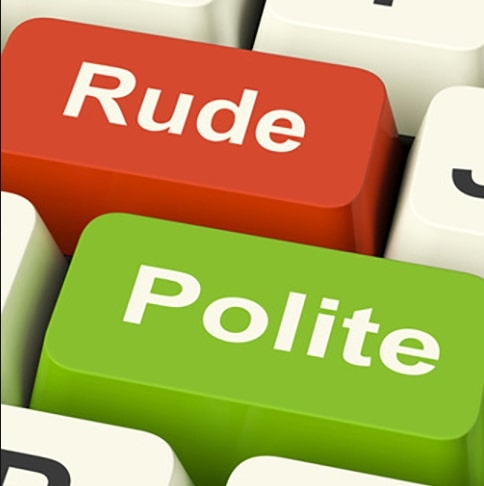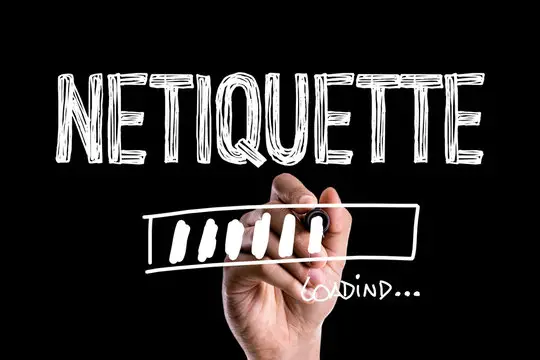In today’s interconnected world, the internet has become an integral part of our lives. That’s why ethics is essential in the users of the internet. It’s a vast landscape where information flows freely, allowing us to connect with people from around the globe, access a wealth of knowledge, and engage in a myriad of online activities.
However, as we navigate in this digital realm, it’s imperative to remember that relative ethics is not confined to the physical world alone; it plays a pivotal role in shaping our behavior and interactions on the internet as well.
In this article, we delve into why the relative ethics is essential when browsing the internet and why being nice should be substantially at the forefront of our online endeavors.

Table of Contents
Reasons Why Ethics Is Essential Whenever You Surf the Internet
1. The Digital Ethics Landscape
Ethics is a concept that guides our moral decision-making, influencing our actions and interactions in various contexts. The online world, being an extension of our real lives, demands a similar level of ethical consideration. As we engage with social media, online forums, e-commerce platforms, and other digital spaces, we leave behind a trail of interactions that reflect our character and values.
Ethics is particularly important on the internet due to its global nature. When we interact with others online, we’re not just connecting with individuals from our immediate surroundings; we’re engaging with people from diverse cultures, backgrounds, and perspectives. This calls for a heightened sense of awareness regarding the potential impact of our words and actions. What might be acceptable or humorous in one cultural context could be deeply offensive in another. Hence, embracing a universal code of ethics is crucial to fostering a harmonious online environment.
2. The Power of Words in the Digital Sphere
In the digital realm, our words hold immense power. They can spread rapidly, reaching a wide audience within moments. This speed and reach underscore the fact that ethics is not a mere afterthought – it’s a core component of every online interaction. Being mindful of our language, tone, and intent is essential to prevent causing harm or perpetuating negativity.
Ethics is deeply intertwined with how we communicate online. Cyberbullying, hate speech, and trolling are just a few examples of unethical behaviors that can lead to serious emotional and psychological harm. Just as we would never condone such behaviors in the offline world, ethics is the foundation upon which we build our digital conversations as well.
3. Empathy in the Digital Age
Ethics is closely linked to empathy, a quality that is paramount for fostering healthy online relationships. When we practice empathy, we place ourselves in the shoes of others, attempting to understand their perspectives and emotions. This is particularly crucial when disagreements arise, as ethics is what guides us to engage in respectful debates rather than resorting to personal attacks.
The absence of face-to-face communication in the digital world can sometimes lead to misunderstandings. Without the visual cues and body language that we rely on in real-life conversations, written words can be misinterpreted. This is where the importance of ethics is highlighted once again. By choosing our words carefully and assuming positive intent, we can prevent conflicts and ensure that our online interactions are conducive to meaningful discussions.
4. The Ripple Effect of Online Behavior

Our actions on the internet, no matter how small, can have far-reaching consequences. Ethics is what reminds us that every like, share, comment, or post contributes to the collective digital experience. Just as we strive to make positive contributions in our physical communities, ethics is what encourages us to create a positive and inclusive digital environment.
Consider the phenomenon of viral content. A single post can quickly become a global sensation, shaping perceptions and influencing discussions. Whether we’re sharing news articles, memes, or personal stories, ethics is the guiding force that ensures our contributions align with truth, respect, and fairness.
5. Teaching Digital Ethics
As the internet becomes an integral part of education and socialization, teaching digital ethics to the younger generation becomes essential. Just as we pass down values and morals in the offline world, ethics is what equips us to instill a sense of responsibility and empathy in the digital realm.
Educators and parents play a crucial role in shaping the online behavior of young internet users. By imparting the understanding that ethics is not a separate entity confined to real life, but a principle that extends to every online interaction, we can empower the next generation to navigate the digital landscape with mindfulness and respect.
6. Ethics in the Age of Information Sharing
The internet is a treasure trove of information, but the ease of sharing and disseminating content comes with ethical implications. Ethics is what guides us to critically evaluate the information we encounter and share only that which is accurate, reliable, and beneficial. Spreading misinformation or engaging in clickbait practices erodes trust and undermines the integrity of the digital space.
In a world where anyone can be a content creator, ethics is what distinguishes between sensationalism and responsible journalism. Whether we’re sharing personal experiences, news articles, or opinions, ethics is the compass that directs us toward authenticity and accountability.
Conclusion
In the sprawling landscape of the internet, ethics is the cornerstone of our online behavior. Just as we value respect, kindness, and empathy in our face-to-face interactions, ethics is what reminds us to embody these virtues in the digital world as well. By recognizing the power of our words, practicing empathy, and understanding the far-reaching impact of our online actions, we can collectively create a virtual sphere that is inclusive, informative, and harmonious.
So, the next time you log on, remember: “Ethics” is not an option – it’s an essential part of being a responsible and considerate digital citizen. Be nice, because ethics is the key to spreading positivity in the vast realm of the internet.
Bible Verse
“Be kind to one another, tenderhearted, forgiving one another, as God in Christ forgave you.” Ephesians 4:32 ESV
As Christ Jesus with all his Might and Superpowers had been magnanimously kind and super loving to us an undersized mankind before until this day. Likewise, we too will be disciplined to do kind things in this world as just as Jesus loved us also. Practice no racial discrimination, no partiality, nor no preference or favoritism as much as you can at all times. There is no rich or poor, intelligent or foolishly dumb because we are all equal in the presence of the ever-Mighty Supreme Lord. As the verse entails– it is a command by God, so therefore we need to obey.
2 Chronicles 20:6 “And Jehoshaphat stood in the assembly of Judah and Jerusalem, in the house of the Lord before the new court and said, “O LORD God of our fathers, are you not God in heaven? You rule over all the kingdoms of the nations. In your hand are power and might, so that none is able to withstand you.”
Teach your children to always pray and attend Sunday service so when they grow up, they readily turn to God instead of the worldly gadgets and the world.



